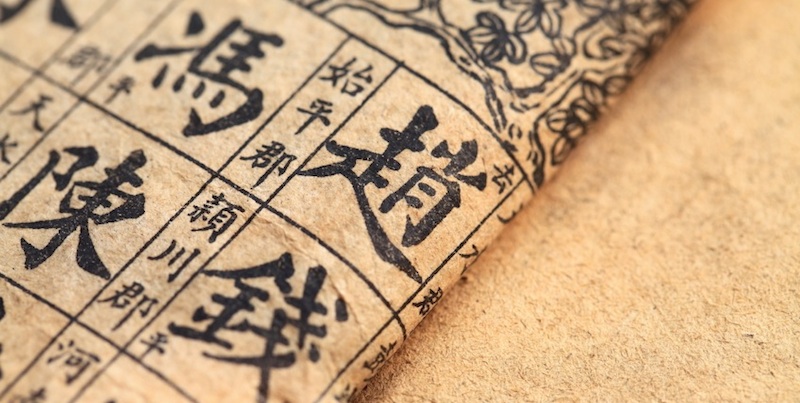SingaporeMotherhood | Baby & Toddler
December 2015
Finding the Best Chinese Name for your Baby

One of the most important decisions that parents will ever have to make on behalf of their children is to choose his or her name. For the more traditional of Chinese families, the Chinese name is even more crucial than an English or Christian name.
After all, as the Chinese saying goes, “赐子千金,不如教子一艺。教子一艺,不如赐子好名”. This means: “Instead of giving your child gold, teach him a skill. Even better than that, bestow a good name upon your child.”
[banner][/banner]
Those who come from English-speaking backgrounds often discover that choosing the right Chinese name for their child can be a huge headache. Just ask Facebook founder, Mark Zuckerberg, who asked Chinese President Xi Jinping to choose an honorary Chinese name for his (then unborn) baby girl. President Xi declined on the grounds that this was too heavy a responsibility.
We ask these parents how they went about picking their children’s Chinese name.
1. Consult the Experts for the best Chinese name

Some dismiss the old-school practice of seeking advice from a geomancer or temple elder as one that is steeped in superstition and something that only our parents’ and grandparents’ generations would do. Yet this can turn out to be a surprisingly common resource that even young Singaporean parents readily tap upon.
Doing a quick search online will yield listings and reviews of popular fengshui masters here in Singapore who provide baby-naming services for a fee. Some of the more popular ones include Huaxia Taimaobi Centre, Jing Zi Long Fengshui Centre, and Lotus on Water (Master Yun Long Zi).
Parents need to provide the ‘ba zi’ or eight characters as defined by baby’s birth data, so this can only be done after birth. Typically, the experts will analyze the data and recommend auspicious names based on the principles of Chinese metaphysics or astrology, such as the five elements.
Alternatively, you can consult at your temple, as Joy Wong, a stay-at-home mum in her 30s, did when her son was born five years ago. “Choosing an appropriate Chinese name for our child was something my husband and I considered important, but both our families are English-speaking, so we felt it would be better to task this to someone more learned. A temple’s abbess, whom I happen to be acquainted with, provided a couple of suggestions, favoring one, which she felt would complement and boost his personality. So we gave my son that name.”
2. Do your Homework
If you are up to the challenge, you can even D-I-Y it! While awaiting baby’s birth, start reading books by popular master geomancers like Vincent Koh and Joey Yap, and study a copy of the Chinese almanac.
The Internet is also full of information and forums on the topic. Once your child is born and you have the date and exact time of birth, you can look up baby’s ‘ba zi’ in the Chinese almanac or simply use a free online calculator, such as the ones from Dragon Gate Palace or Feng Shui Village.
Many geomancers recommend choosing a name that is compatible with your child’s dominant elements and which complements the elements of both parents (yes, that means also knowing your own ‘ba zi’).
It should also accentuate your child’s strengths and compensate for any weaknesses. Finally, check that the name has an auspicious combination and total number of strokes, and don’t forget to read the name aloud to make sure it sounds right, especially when paired with the family surname, in Mandarin and in dialect.
Primary school teacher Pamela Tan asked her mother-in-law, who loves to study the Chinese almanac, to pick her kids’ names. Her mother-in-law chose names that would complement the children’s personalities and boost their well-being. “For example,” recalls Pamela, “my daughter was born in the year of the Monkey – we wanted this blessing from God for her to grow up confident in her natural habitat, hence she was named En Lin (恩琳).”
3. Continue the Generation Chinese Name Tradition

We all know families where the kids have Chinese names which share an identical character. Apart from being a heartwarming touch (and making kids’ names easier to remember), this is also a centuries-old Chinese custom that allows you to trace your lineage.
Back in the day, many dialect clans adopted the convention of a generation name to distinguish members of each succeeding generation. Typically a family would adopt or compose a poem, and each generation would take on the next word in the poem in their name. This tradition only applied to boys, as girls would eventually marry and take on their husband’s surname. Today, however, there is often a different set of characters for girls.
Elaine Lim’s Hainanese in-laws practice the generation name. “All of my son’s male cousins have the character ‘Lim’ in their names, and his dad and grandpa both have some form of a ‘water body’ in theirs. So after playing around with possible names to see what sounded the best, we decided on Lim Chuen (林泉), which brings to mind the tranquility of nature in the form of a spring running through a forest,” the stay-at-home mum to a 13-month-old boy said.
4. Follow your Heart and go with the Flow
Apart from the more traditional methods, many parents simply go with what feels, looks and sounds right to them. And there is absolutely nothing wrong with that either.
As Wong YY, a 39-year-old senior engineer and mother of two girls aged one and five years, declared, “I don’t really care about such traditions. I focused on the meaning of the words. For my first child, I hope that every word she says will bring joy to everyone, so I named her Le Yan (乐妍). My second is Le Jing (乐靖), meaning joy and peace. Another consideration was to choose names that would be simple for them to learn how to write.”
Public service officer Chong Poh Choo and her husband felt the same when deciding on a name for their now two-year-old son. “We chose Oliver’s Chinese name Yi Han (义涵) based on the qualities we hope he will possess – so that he will grow up righteous (正义) and have substance and good character (内涵). We didn’t consult anyone. Daddy and mommy decided for Oliver.”
All content from this article, including images, cannot be reproduced without credits or written permission from SingaporeMotherhood.
Follow us on Facebook, Instagram, and Telegram for the latest article and promotion updates.






